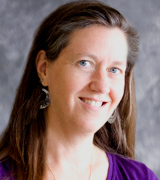Employment readiness and skills gaps among adolescents with and without disabilities
-
Overview
-
Background
-
Progress
-
Project Team
Funding
The project is funded by The Social Sciences and Humanities Research Council (SSHRC) Standard Research Grant (2011-2014) $56,836.
Principal Investigator
Sally Lindsay, Ph.D.
Department of Occupational Science & Occupational Therapy
University of Toronto
Co-investigators
Tracey Adams, Ph.D.
Sociology, Faculty of Social Science
The University of Western Ontario
Shauna Kingsnorth, Ph.D.
Holland Bloorview Kids Rehabilitation Hospital
Teaching and Learning Institute/Bloorview Research Institute
Carolyn McDougall
Holland Bloorview Kids Rehabilitation Hospital
Teaching and Learning Institute/Bloorview Research Institute
Summary of Proposed Research
Increasingly Canadians work in a "knowledge economy" where successful workers are educated, skilled, and flexible. While employers accept the necessity of training workers in job-specific skills, they frequently expect adult workers to enter the labour force with a broad skill set, acquired through education and adolescent labour market experiences. Evidence consistently shows that obtaining employment-related skills and work experiences during high school predicts favourable employment outcomes in early adulthood, including earnings. In our service-based economy, there is a growing emphasis on "soft skills" (e.g., communication, interpersonal and problem solving skills), and employers report concerns about worker's deficiencies in these areas. Today, many youth find the transition to adulthood and entry into the labour market challenging, and this is particularly so for youth with disabilities, who, research shows, are more likely to lack marketable skills, to be unemployed and to experience social exclusion and poverty compared to their able-bodied peers.
This research explores the labour market experiences of young workers, with a focus on both disabled youth and their able-bodied counterparts. Given that there are over 200,000 youth with a disability in Canada it is critical to develop a better understanding of the specific skills that they may lack because skill deficiencies can constrain opportunities, and perpetuate social exclusion and poverty.
The objectives of this research are: (1) To identify employers' beliefs concerning desirable employee skills for adolescents; (2) To understand the specific employment-related skills that youth with disabilities may be lagging behind in compared to their peers; and (3) To explore the challenges and successes faced by youth seeking to acquire relevant employment skills.
Given the exploratory nature of our research, questions will draw on qualitative methods. In the first phase of our research we will conduct interviews with 10 to 20 employers to identify skills that may be required of youth in the labour market. In the second phase we will conduct an in-depth observational case study of 20 able-bodied and 20 disabled youth to explore whether youth with disabilities are less likely than those without to possess the required skills. In this phase we ask our participants (both able-bodied and disabled) to take part in a 1-hour session involving work-based scenarios that will be video recorded and assessed by an expert panel to document key skills demonstrated and any skills gaps existing between youth with and without disabilities. In the final phase we seek to uncover the successes and challenges faced by youth when acquiring relevant employment skills by conducting 2 focus group discussions with a sub-sample of the participants from Phase 2.
We draw on a social construction of skills perspective to understand the skills gap between able-bodied and disabled youth. Our research addresses a gap in the area of the sociology of work where very little attention has been paid to people with disabilities. We argue that identifying and developing vocational skills is a social process that is influenced by existing power and social structures whereby people with disabilities are often devalued; and thus, lack critical opportunities to develop and acquire employment readiness skills. This theoretical perspective is consistent with the Canadian Consensus on Childhood Disability, the International Classification of Functioning, Disability and Health, and the UN Convention on the Rights of the Child which seeks to address injustice for disabled people who have citizenship rights and are assets (rather than liabilities) to society.
This project is significant because the social and economic impact of the exclusion of people with disabilities from the labour force is considerable. Improving inclusion is critical because the UN Convention on rights of people with disabilities stresses the need for persons to have equal opportunities for freely chosen work, effective access to guidance programs, training and opportunities for advancement. More importantly, the findings will inform the development of effective employment training programs and help to increase the skills and employment outcomes of youth with disabilities, and ultimately, help to reduce economic and social costs of disability.
(2014) Tracey L. Adams, Sally Lindsay, Robyn Sanford, Carolyn McDougall, Shauna Kingsnorth & Dolly Menna-Dack, "Employers’ and employment counselors’ perceptions of desirable skills for entry-level positions for adolescents: how does it differ for youth with disabilities?" Disability & Society 29(6):953-967.
Principal Investigator:
Sally Lindsay, Assistant Professor
Department of Occupational Science & Occupational Therapy, University of Toronto
- participation and inclusion of children with disabilities and their families
- transitions to adulthood
- hospital-to-home transitions
- vocational rehabiliation and employment readiness
slindsay@hollandbloorview.ca
416-425-6220 x3654
Faculty Profile
Co-Investigators:
Tracey Adams, Professor

- Work
- Professions
- Regulation of professions
- Social inequality
- Gendered professions
- Health professions
Shauna Kingsnorth, Clinical Study Investigator
Holland Bloorview Kids Rehabilitation Hospital
- Qualitative Research
- Healthcare
- Psychology
- Qualitative Research
skingnorth@bloorview.ca
416 425 6220
Faculty Profile
Collaborators:
Dolly Menna-Dack, Youth Facilitator
Holland Bloorview Kids Rehabilitation Hospital, Teaching and Learning Institute/Bloorview Research Institute
dmennadack@hollandbloorview.ca
416-425-6220 x3292
Robyn Sanford, Recreation Program Coordinator
Holland Bloorview Kids Rehabilitation Hospital, Teaching and Learning Institute/Bloorview Research Institute
rsanford@hollandbloorview.ca
416-425-6220 x6406
Faculty Profile

